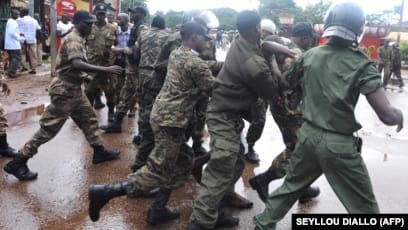Former dictator Moussa Dadis Camara and ten other ex-officials stand accused of the atrocities committed on September 28th, a day etched in national and international memory.
A UN-mandated commission of inquiry previously documented the violence, reporting at least 156 deaths, widespread injuries, and over 109 women raped. The trial, which began in September 2022, aims to bring justice for these crimes.
Deputy prosecutor Abdoulaye Babadi Camara opened the closing arguments, emphasizing the trial’s historic significance. He outlined the severe charges faced by the defendants, including murder, torture, kidnappings, and arson.
Camara emphasized Guinea’s national unity, stating that “no Guinean is superior to another.” He then recounted the events of September 28th. Opposition leaders and their supporters had peacefully gathered in a Conakry stadium, but the day descended into chaos.
The prosecutor described security forces storming the stadium, firing indiscriminately. Women were brutally assaulted, citizens robbed, and the violence spread throughout the city. He credited the Red Cross with saving lives amidst the carnage.
The UN report grimly confirmed the scale of the brutality, with hundreds injured and over 150 killed by bullets, blades, and blunt weapons.
Camara described the day as a “fateful” moment, sparking national and international outrage. Both the prosecution and civil parties have called for the case to be reclassified as a crime against humanity.
The accused have yet to take a unified stance, with some shifting blame onto others. The trial’s outcome is keenly awaited, offering a chance for accountability and a step towards healing this dark chapter in Guinea’s history.
lb/abj/APP With AFP


